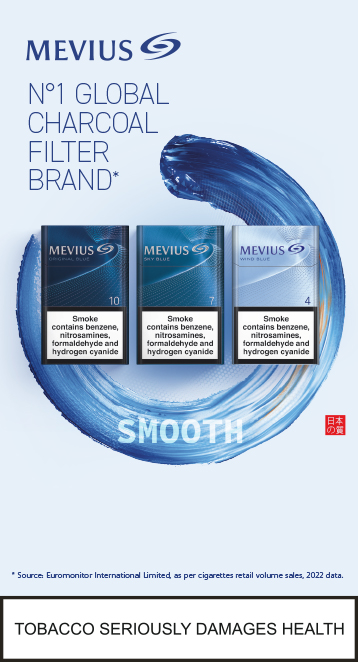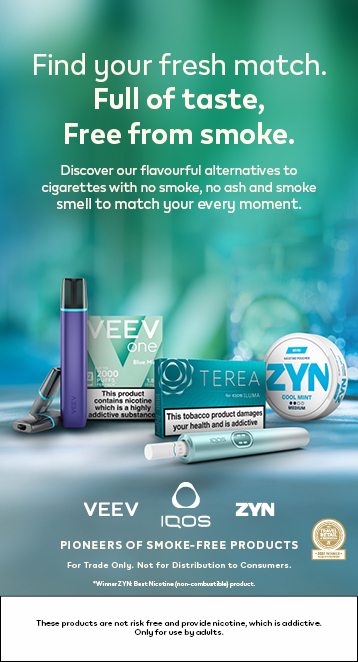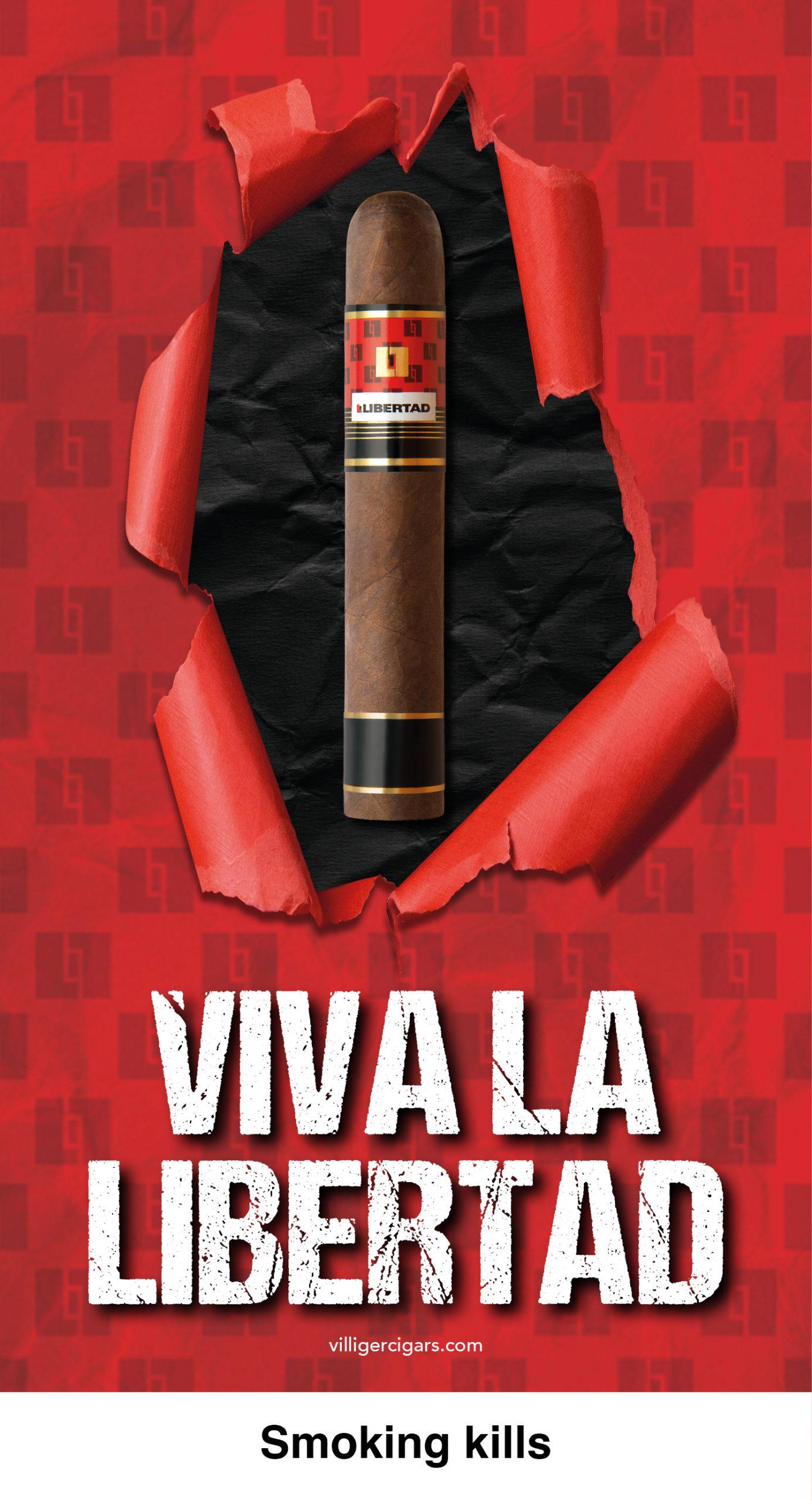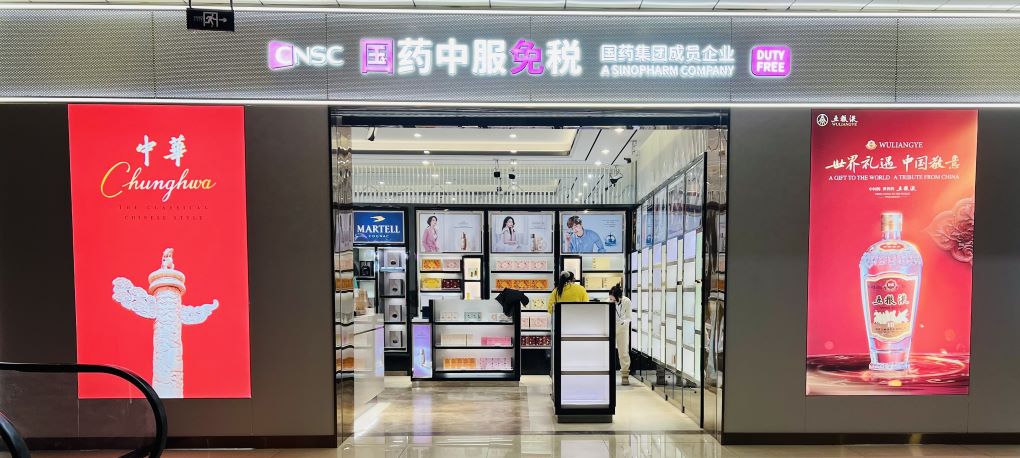
The Moodie Davitt Report brings you the latest instalment in our popular series Ten Easy Pieces*, in which we get up close and personal with leading travel retail personalities via ten snapshot questions.
Meet Jennifer Cords, the departing Imperial Tobacco Head of Corporate Affairs and Compliance Global Duty Free & Export, who regards travel retail as a ‘window to the world’.
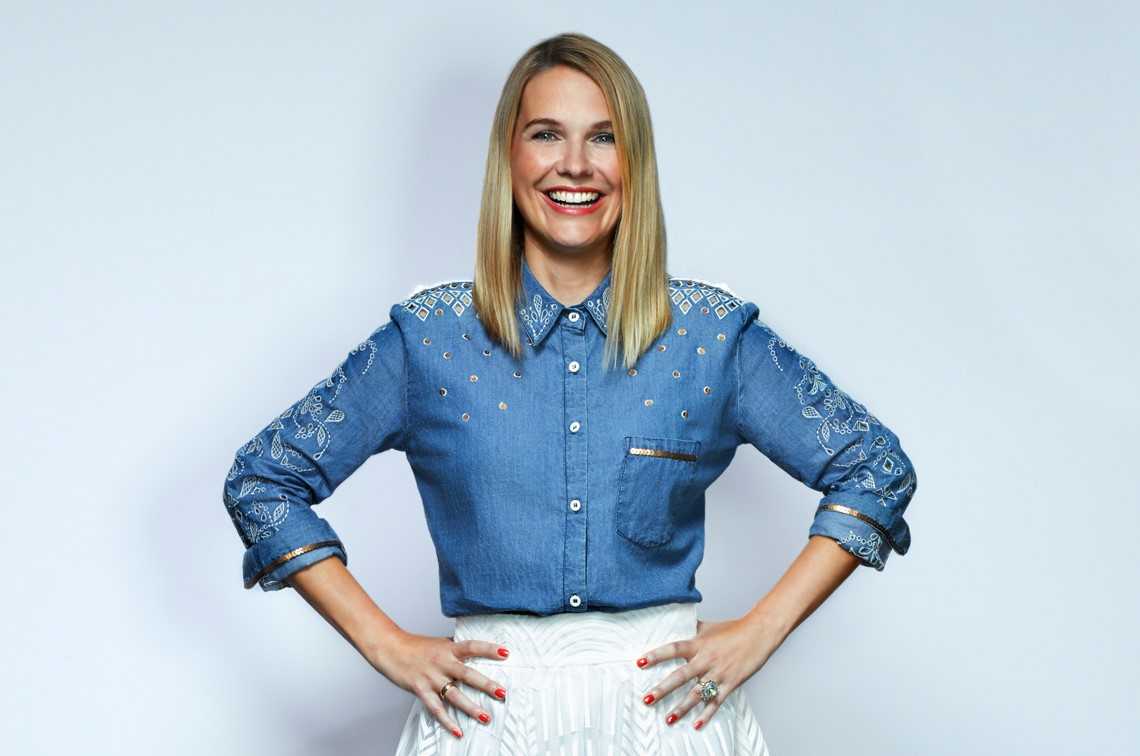
1. Where were you born and raised?
I was born during the famous hard winter of 1979 in Papenburg, Northern Germany. There was so much snow then that people who had parked their cars couldn’t find them!
My mother, Marlies, is German and Ronald, my father, is from the Netherlands. My younger sister and I grew up as ‘children of the 80s’, influenced by Dutch TV that showed many American series such as He-Man and She-Ra, Thundercats and Star Trek. I loved the ongoing discussions between Kirk and Spock about human feelings which for Kirk were “useless and hindering”.
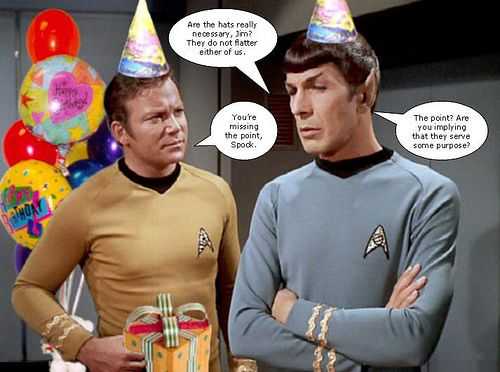
Star Trek: Voyager inspired me with the first female Captain Janeway during my study times. The way she said “dismissed” to her Starfleet crew, especially when she disagreed with their comments, was priceless.
2. As a young woman did you have a master plan for your future?
I did not have a master plan but looking back ‘strategic communication’ was always part of my life. It started when I was seven and elected for the first time as a class speaker. I believe I learnt from a very young age that it was more of a burden than a compliment to negotiate consensus between class mates and teachers. I was good at it though and was elected later on as a spokesperson for the whole school. My communication skills continued to be my call of duty, or even my calling.
Studying political science was the perfect addition to my skill-set.
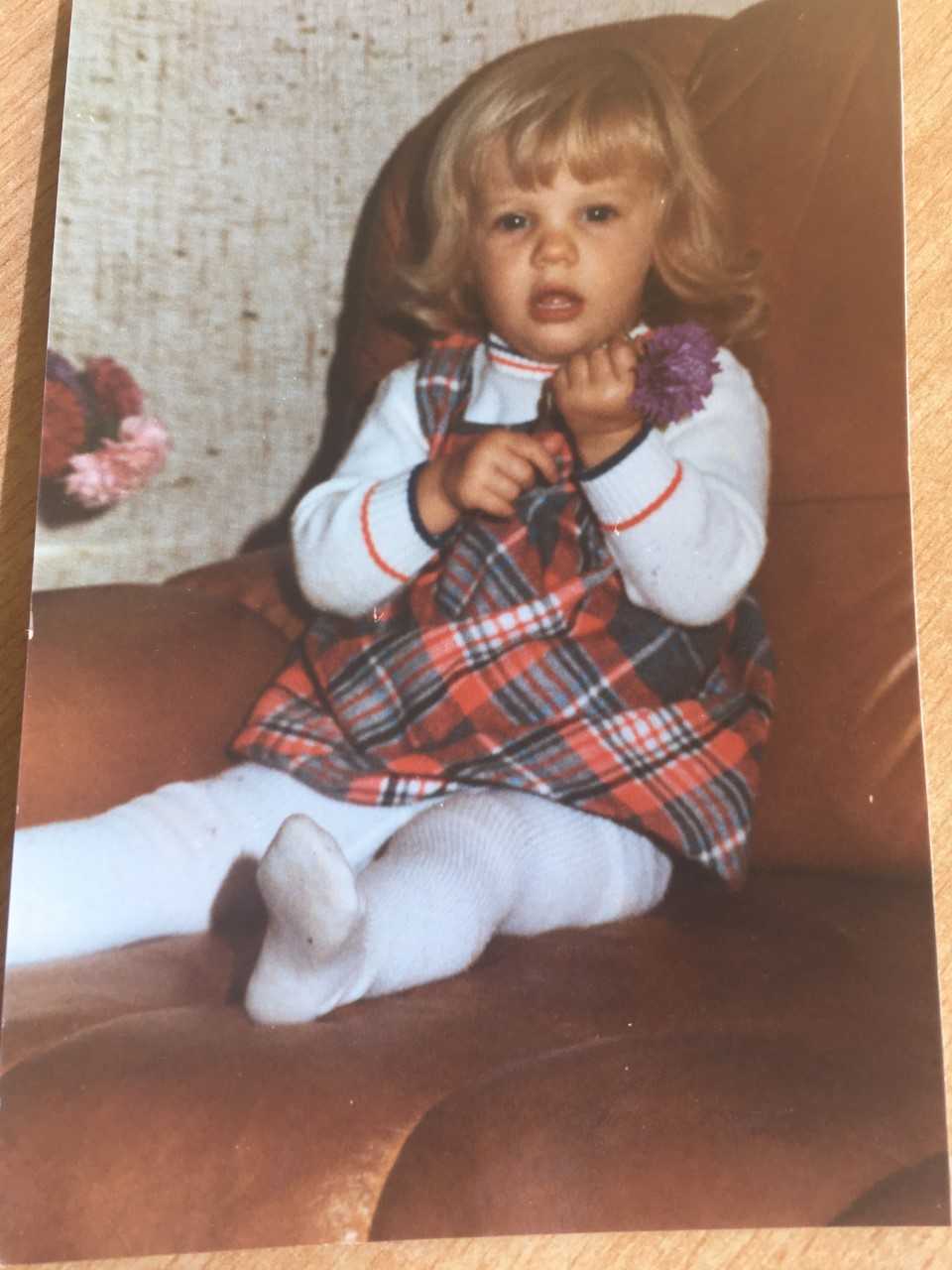
3. Did anyone influence your decision to study?
I am very grateful that no-one in my family has ever influenced me in my decisions. My mother is my sparring partner; a careful listener but not an influencer. She once gave me the sound piece of advice that any recommendation is a step towards being influenced. Even today she would never tell me what I should or should not do. She will listen until I come to my own conclusion.
Having said that there is one exception; and that’s anything to do with fashion. My mother is very clear that I should not wear my hair short. Nor should I wear beige or any kind of egg-shell colours. And I listen to her!
4. Tell us about your early professional life. Where does your strength come from?
I studied in Germany, the USA and the Netherlands from 1998 until 2004. As a student I worked part-time at an H&M fashion store when the Euro was introduced. I remember feeling really stressed having to cope with two currencies during the transition period.

I received my Doctorate and in 2005 started to work as a regional manager for the Chamber of Industry and Commerce, which in Germany is a federal institution and not a ‘business club’. I was concerned with lobbying for German retail and German entrepreneurs through a number of associations. Later I also represented Northern Germany in Canada and the USA on a Rotary International promotional tour, ‘This is Germany’s Economy and Society’.
I believe my strength then came from an ambitious drive and appetite for learning. And a boss who truly was a mentor and provided real leadership. He encouraged me to be proactive and to use special projects strategically for exposure and building my own brand.
“I just do my own thing and nobody can tell me that something is not possible”
And now my strength comes from an inner peace that I live in harmony with my weaknesses. It took me almost 40 years but I can now live with the fact that I am not good at predictive analytics and I just don’t like coding and computing.
I am a bumblebee. I work full-time in a global duty free position; a travelling mum of two young girls (Greta is five and Hedi is two years old). How is that possible you may well ask? It’s not really. It’s like the myth that bumblebees cannot fly due to their weight in relation to the size of their wings. The thing is that bumblebees don’t know that they cannot fly. So they fly.
I just do my own thing and nobody can tell me that something is not possible.
4. What prompted your move to Imperial Tobacco?
I was blessed to have insights from different sectors of German economy; industry, retail and service sector. I worked with entrepreneurs and leaders from various companies and got a feeling that I needed more ‘international oversight’. To me, duty free sounded like a window to the world. There are no boundaries, no clear target group, consumers are travellers from all over the world and there is no ‘exact science’ about duty free, just a code of experiences and best guesses.
Have you seen the movie Terminal, with Tom Hanks? He is not in his home-country, he cannot enter the host-country and decided to live in transit. I like that global bubble, where the world comes together peacefully, like a global marketplace. A truly international business; this was the perfect match for me.
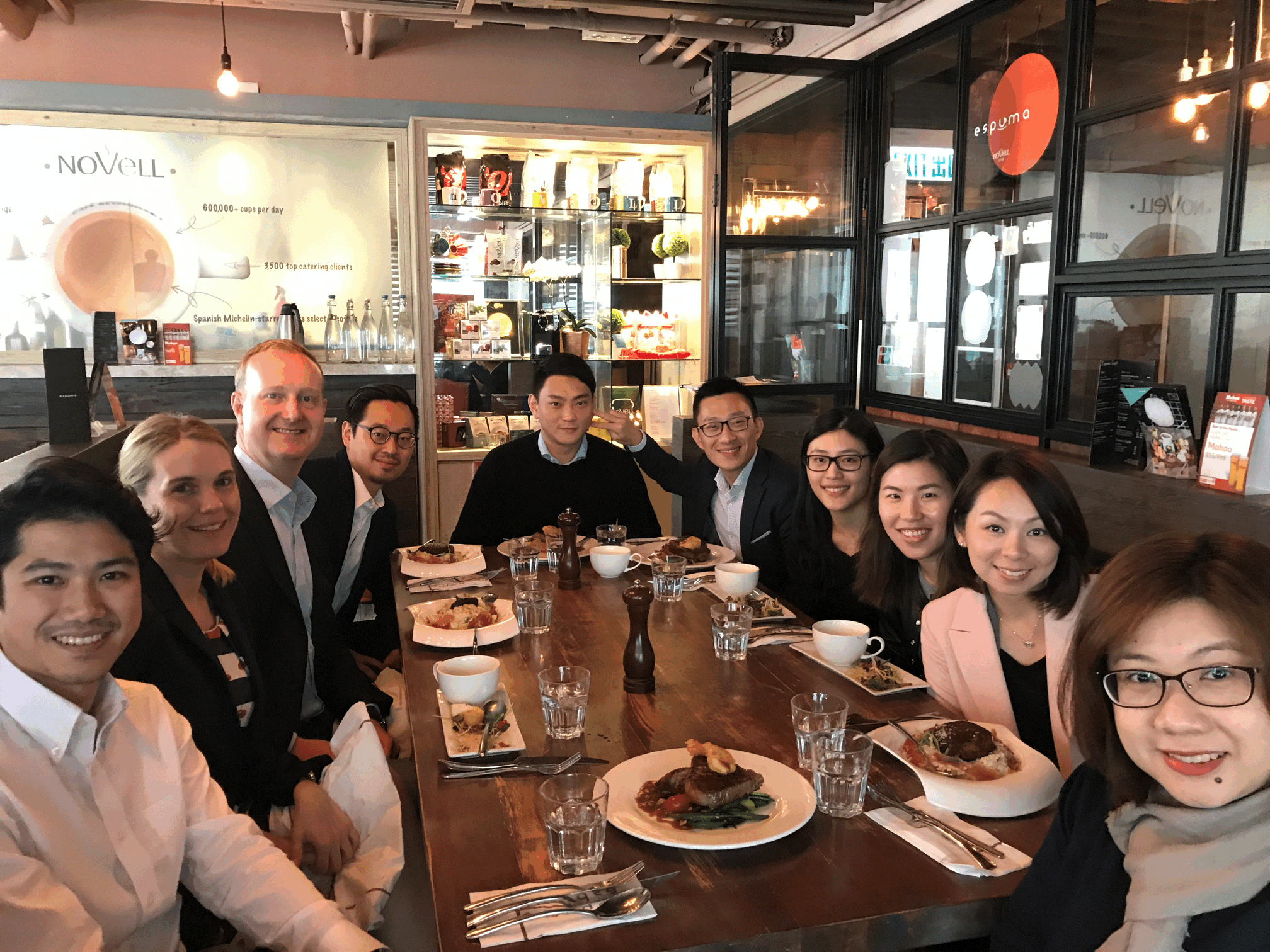
Imperial gave me the chance to have a bird’s eye view on duty free and the political challenges involved. The global team is amazing, acting as one family spread through time zones around different working environments. I am safeguarding their business and also, as in my past, acting as their spokesperson for the outside world.
5. How do you remain positive in such a tough market?
The challenges facing the tobacco industry are many – changing regulations, local packaging and display requirements, not to mention global anti-smoking campaigns. But the tobacco industry is not alone. Globally there is a significant trend for unreasonable consumer protection that leads to restrictions on ingredients in lipstick, cosmetics and perfume, the EU action plan against alcohol or increased sugar and fat taxes coming from the Nordic countries.
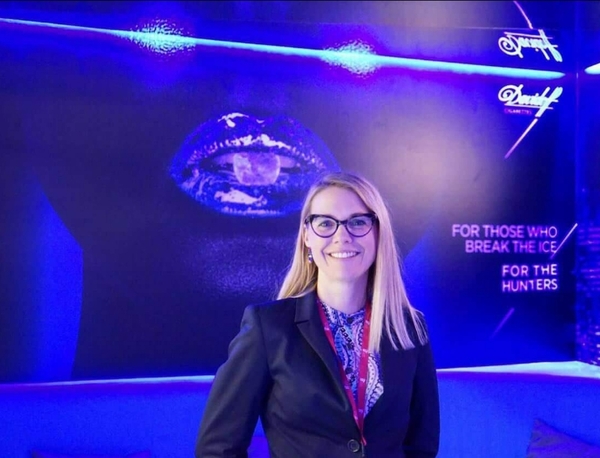

Every category in a duty free store is facing challenges. Creating dialogue between regulators and the industry reminds me of creating consensus between class-mates and teachers – to reach a compromise you need to understand both sides.
I remain positive because my glass is always half full.
“I like that global bubble, where the world comes together peacefully, like a global marketplace”
6. Does the alternative cigarette (heated tobacco, vaping etc) sector have a strong future?
The world is changing. We are seeing more electronic cars, oil companies investing in solar power and travellers who are interested in digital shopping solutions and seamless travelling. I am glad to see that also the tobacco industry is showing an appetite for innovation, whether this is through heated tobacco products, new filter ventilation technology or e-vapour products that do not even contain tobacco leaves anymore. Imperial is playing a role in that field, with our newest hero on the vaping horizon, blu.

blu e-cigarettes allow users to smoke, without the ash or lingering odour. Adapted to suit the lifestyle of any vaper, blu e-cigarettes allow consumers to explore flavours, accessories and diverse e-cig styles to match their specific lifestyle preferences.
7. How important is networking in travel retail? And how can women use it to increase their presence in the channel?
Women should not be afraid of using their network and to openly request to become members or guests of existing networks. Sometimes the duty free industry looks like a ‘closed shop’. I remember how it was for me seven years ago. You have to be proactive, not just standing around, but actively approach people. Ideally you meet someone, who introduces you to others.
Women also have the opportunity to get involved with travel retail trade associations. I really enjoy working and serving with the other brands on the TFWA Management Committee. We discuss industry matters and representation because duty free does not have domestic markets, a ‘capital’ or naturally-grown representation. But every association deserves time. So you have to be prepared for meetings, read documents, contribute to discussions and really ‘do stuff’ on top of your daily obligations at work.
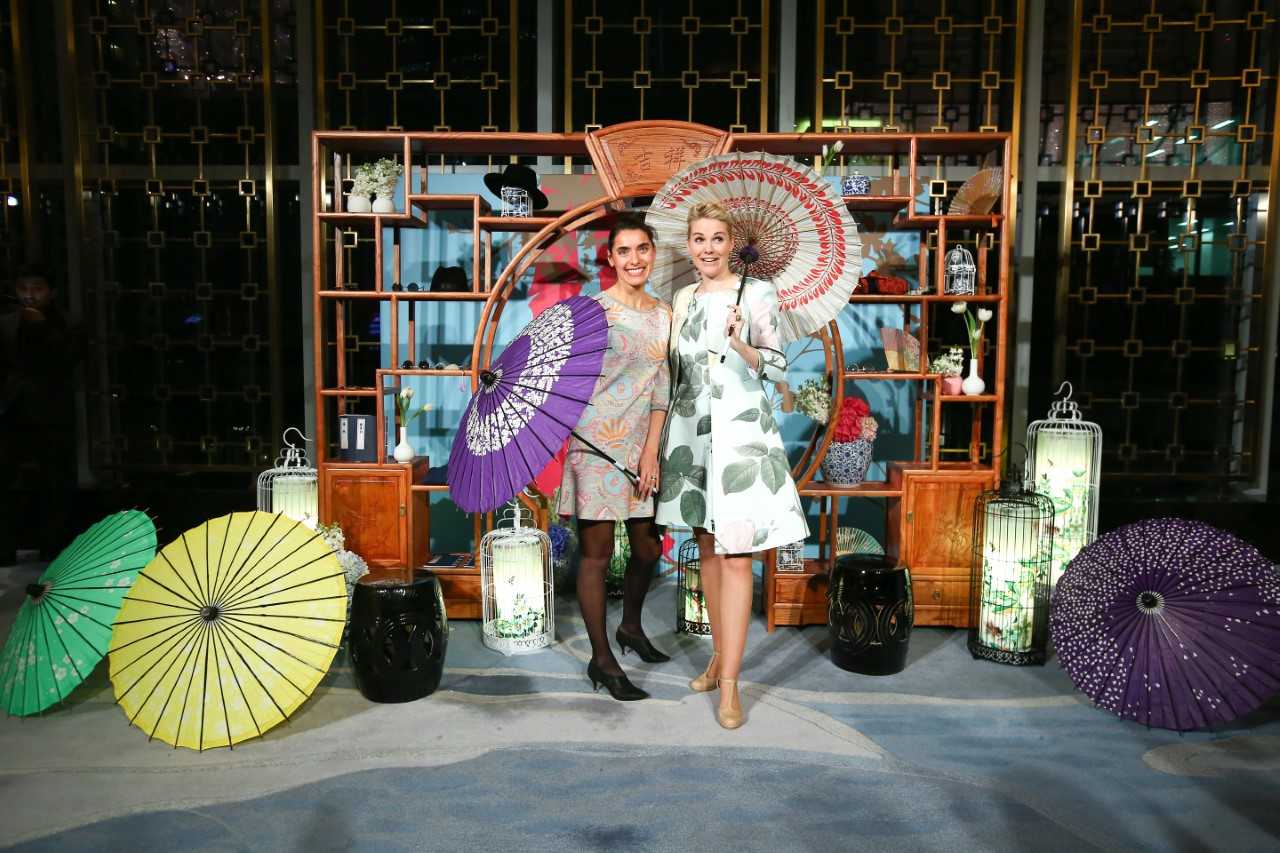
My involvement doesn’t stop at meetings. There are other elements, such as the TFWA World Cannes charity run, which may seem rather a small event but it is important. It follows the TFWA’s ‘tradition’ of offering support to the city’s homeless. Anyone can participate. I even took part when I was pregnant! I ran like a lame duck, but my board colleagues from APTRA (Asia Pacific Travel Retail Association) accompanied me and I was fine!
Running is second nature to me. I started late when I was 25 and always find time to run when I am travelling for work. It’s a way of keeping fit and sorting my thoughts. I go on a 5 -10km run when and where possible, depending on location. But it can be rather dangerous. I fell last week when I was in Athens on a business strategy meeting. Fortunately my colleagues took good care of my wounds.
And there is always the chance of getting lost on a run. That happened to be once, in Moscow. Enough said!

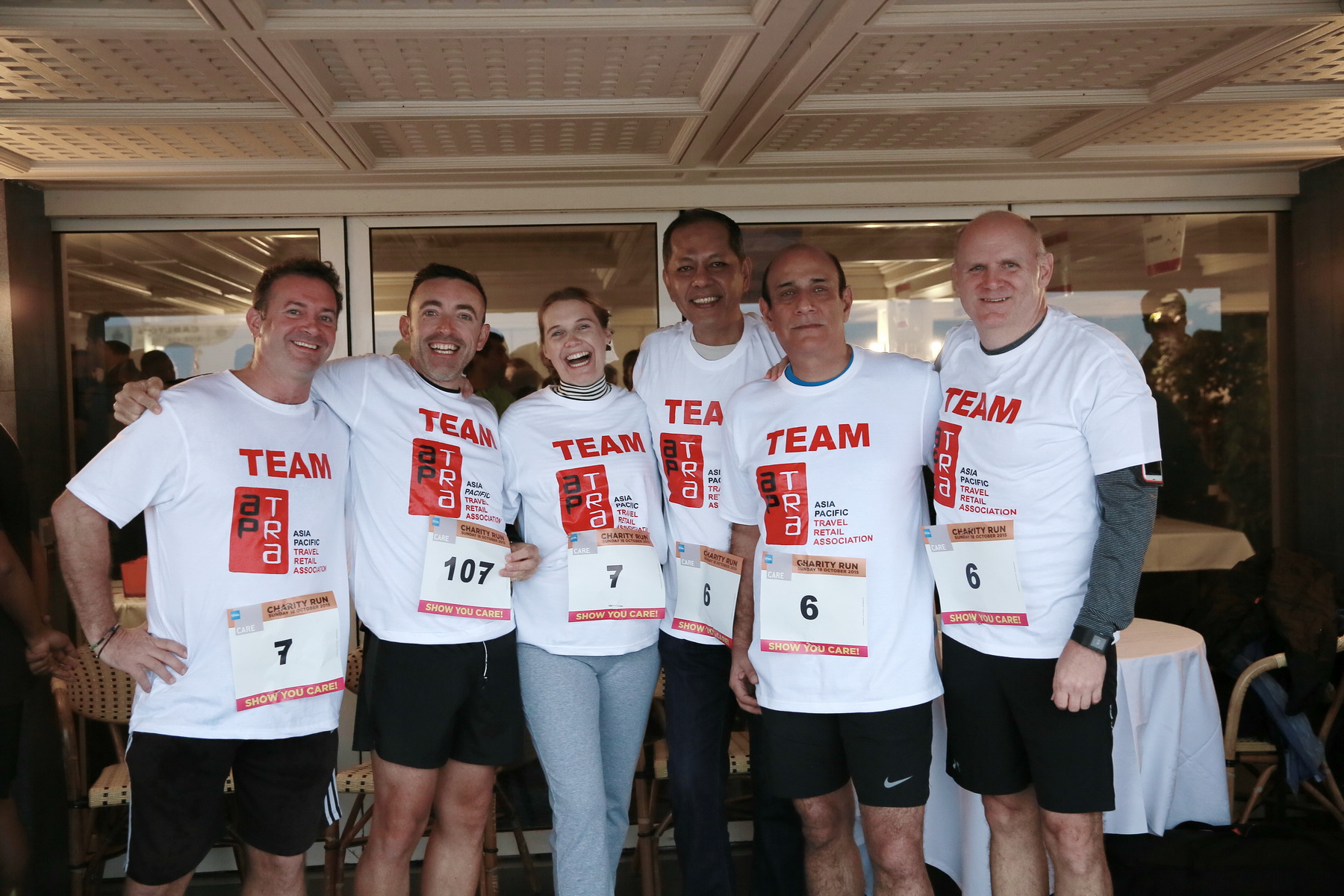
8. Would you consider a career in politics?
No, never; I am very clear about this. I could be a political advisor but limiting myself to one political programme would be very difficult. I could not agree to a political party in Germany.
9. If you had the opportunity to dine with four ‘exceptional’ people who would you choose?
My first choice would be Noam Chomsky, a leading critic of US foreign policy, contemporary state capitalism and mainstream media, together with Michael Moore. Moore is a documentary film-maker, activist and the author of Bowling for Columbine and Stupid White Men.
Bowling for Columbine explores what Moore suggests are the primary causes for the Columbine High School massacre in 1999 and other acts of violence with guns. Moore focuses on the background and environment in which the massacre took place and some common public opinions and assumptions about related issues. The film also looks into the nature of violence in the USA. Stupid White Men was released in 2001 and regarded as highly critical of US government policies in general, and the policies of the Clinton and Bush administrations in particular. |
On the holodeck I would have dinner with Data. Data is in many ways a successor to the original Star Trek‘s Spock (Leonard Nimoy), in that the character offers an “outsider’s” perspective on humanity. Humans are funny! In particular when they try to be very serious about something.
These are only three characters, right? My favourite exceptional ‘real person’ is my best friend Sibille, who shares my love of outdoor festivals.
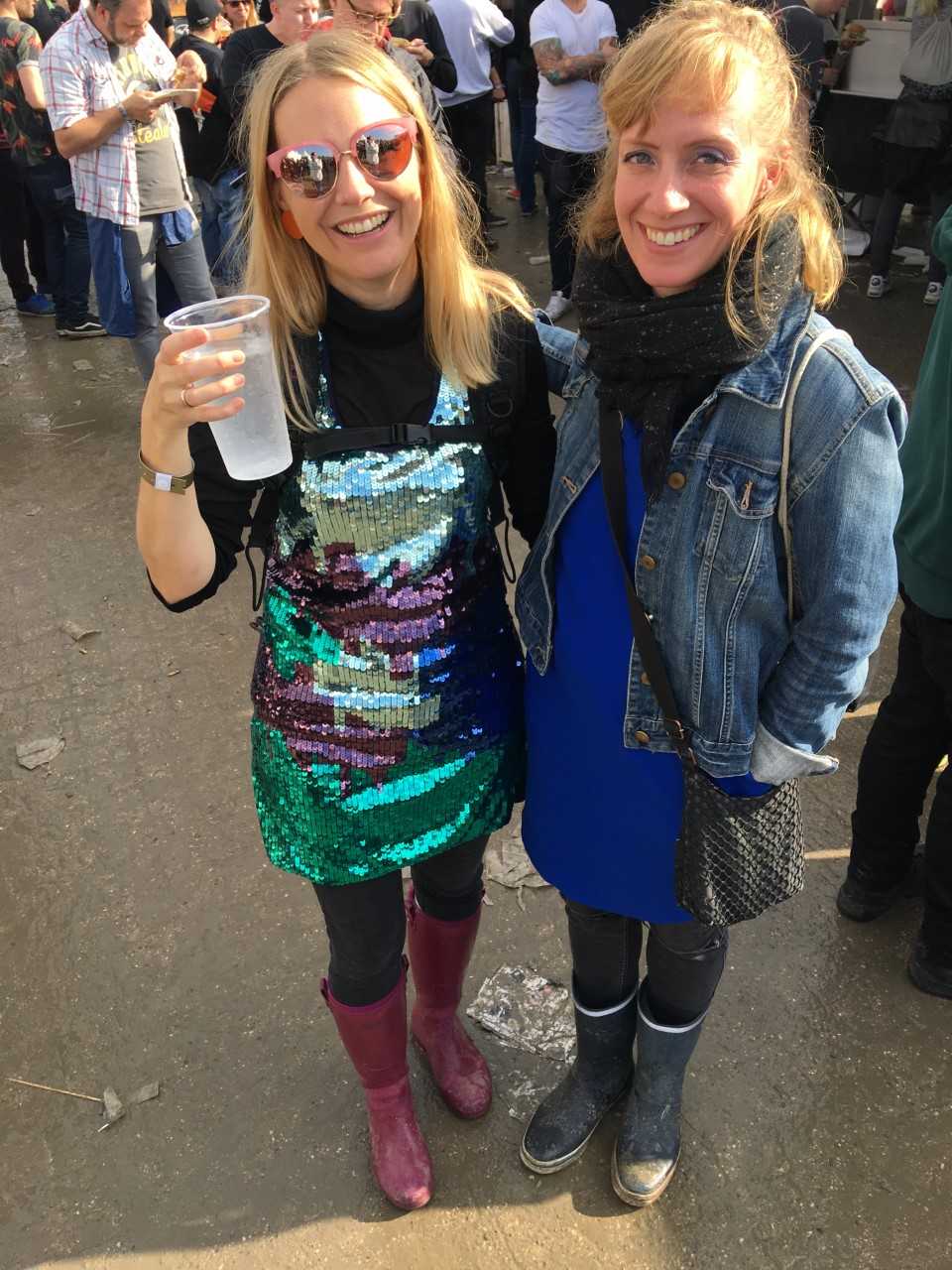
10. Motherhood and a power-packed job. How do you juggle the two and how do you switch off?
It’s super difficult but I have an amazing husband, Philipp. He works part-time as a lawyer in Hamburg to support me and I am super proud of that. He is my most important ‘internal stakeholder’ who enables my career. After seven years in the world of travel retail and duty free I still get homesick when I travel. I miss the kids, I miss running in the morning with Philipp and German bread for breakfast.
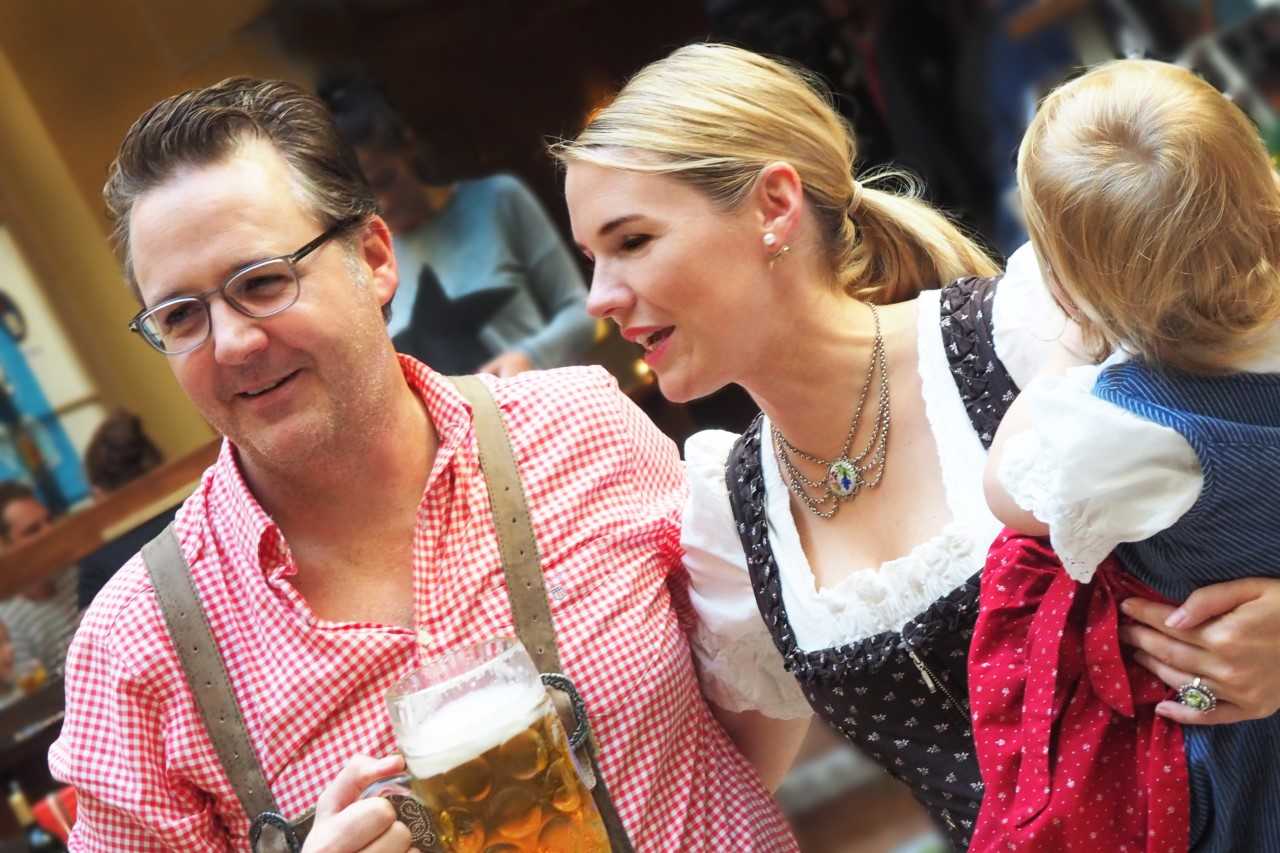
I am quite good at switching off: I know I am not irreplaceable. But to be honest, it took me two maternity leaves to come to that calming conclusion.
I also believe it is important to have a crazy side. After all, I am still a Trekkie!
*PREVIOUSLY FEATURED TEN EASY PIECES PERSONALITIES INCLUDE:
Meet Essence Corp Vice President Patricia Bona
Meet Buckley London Head of Sales Amy Donlon
Meet Jonathan Holland & Associates Managing Director Jonathan Holland
Meet Coccinelle Head of Travel Retail Emanuele Mazziotta
Meet Royal Dragon Vodka Founder and President Michel Morren
Meet Lacoste Travel Retail Director Asia Pacific Erin Lillis
Meet Ian Macleod Distillers Travel Retail Director Andy Lane
Meet Planters nut and snack specialist Jacco Douma



